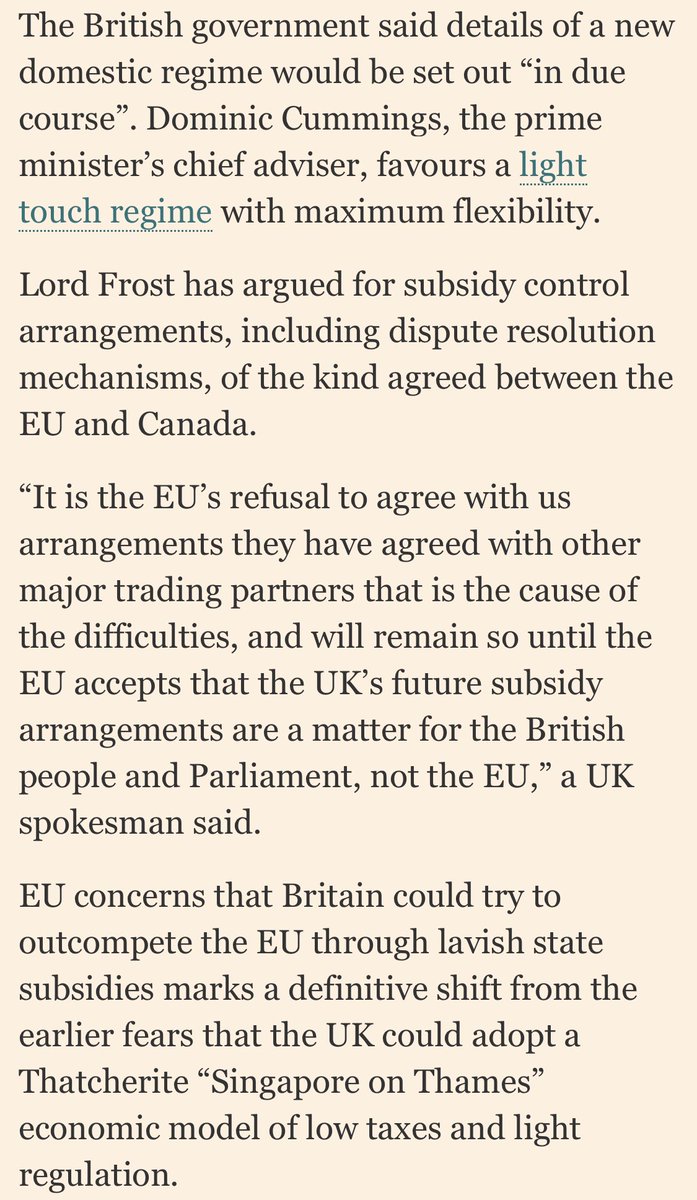A few comments on this story. https://twitter.com/dphinnemore/status/1300522837422362624">https://twitter.com/dphinnemo...
1. The first problem with the UK spokesman’s line is that it ignores economic reality. The UK’s size & geography inevitably mean that its subsidies are likely to affect the EU. It’s like a neighbour who claims that his loud parties at night are “a matter for him and his family”.
2. The second problem is that it ignores political reality.
The UK can, to a large extent, rely on EU State aid to protect it against the most damaging kinds of subsidies by the EU27. It can free ride. Free riders aren’t popular. Any deal that allowed it to free ride is politically unsellable.
3. The third problem is that it ignores legal reality. The NI protocol, Article 10, already means that any UK subsidies after transition are subject to control by the Commission, UK courts and the ECJ.
The limitation on that control - that the subsidy have an effect on trade in goods between NI and the EU - is important: but the “effect on trade” threshold is low in EU law, and the interpretation and application of the test is under the control of the ECJ.
Article 10 is a mess. But the solution to that mess isn’t to ignore it and hope it will go away (it won’t). It is to try to get it renegotiated. But the precondition of any such renegotiation will be a commitment to a UK subsidy regime with teeth (not a “light touch” regime).
Finally, the quote ignores the negotiating reality. Why has current government still not yet published its anti-subsidy policy, with less than 4 months to pass the legislation and get it up and running?
The only excuse offered by the current government for that delay is that that policy is being “developed in tandem” with the EU negotiations.
But that excuse only makes sense if the policy is likely to be affected by the negotiations – which effectively concedes the point that the UK subsidy regime is on the table in those negotiations.
So citing other FTAs as precedents here ignores economic, political, legal, and negotiating reality. (As well as ignoring the large extent to which the U.K. is asking for far more than other third countries.)
A final comment about the last para. The “lavish state subsidy” fear doesn’t quite capture it. The UK actually spends less on subsidies per head than many other states. The fear is more of erratic, harmful (because not thought through) and untransparent subsidies.
Those who carefully watch the current government will have their own views on whether they are confident that, given a free hand, it would subsidise in ways that are consistent, thought-through and transparent. I suspect that the EU has already drawn some conclusions.

 Read on Twitter
Read on Twitter


